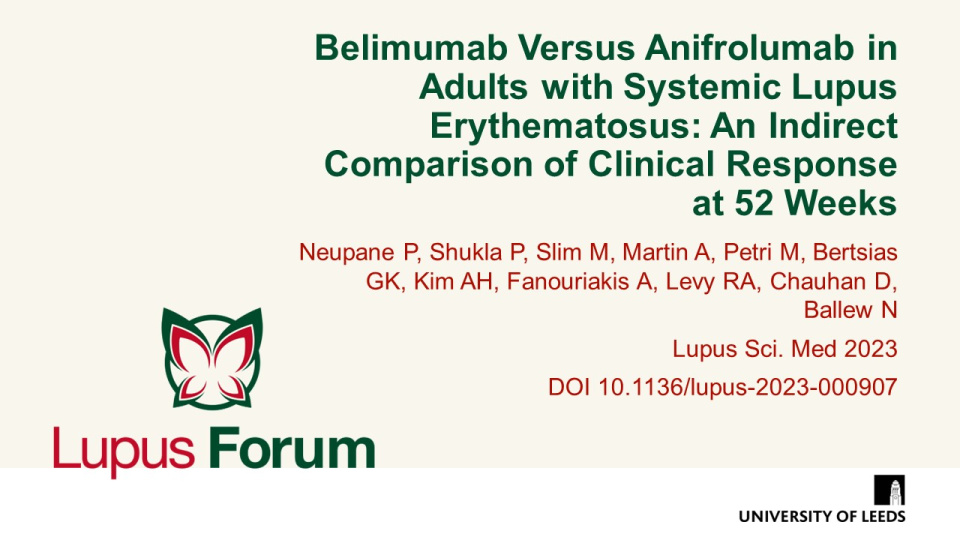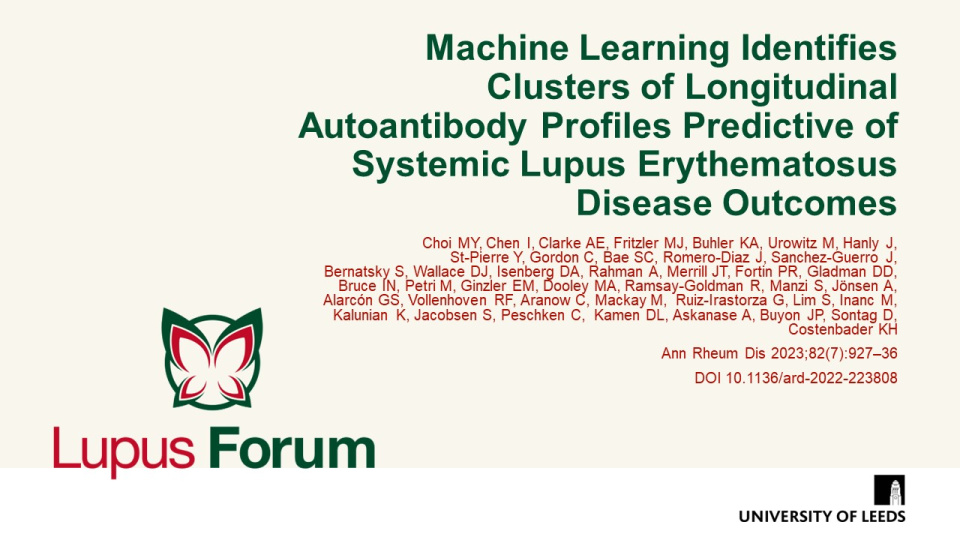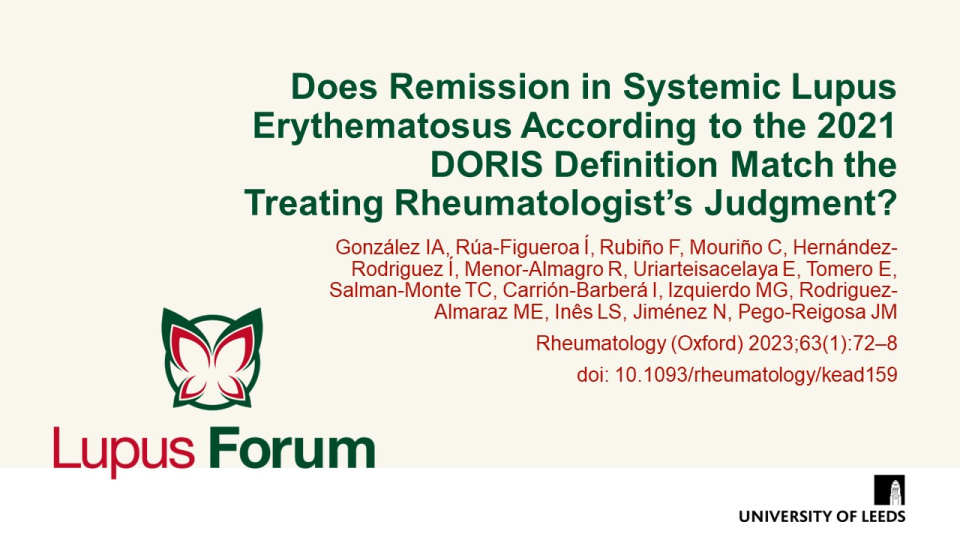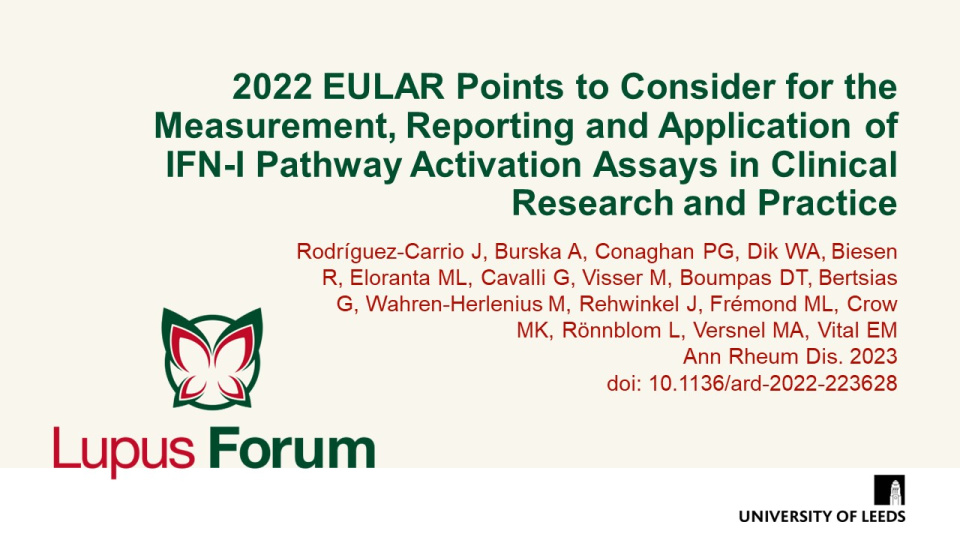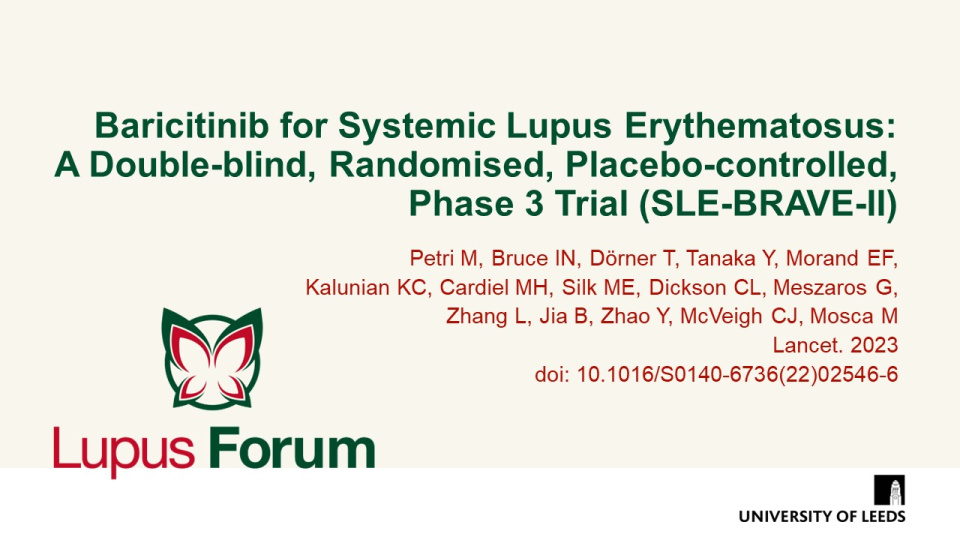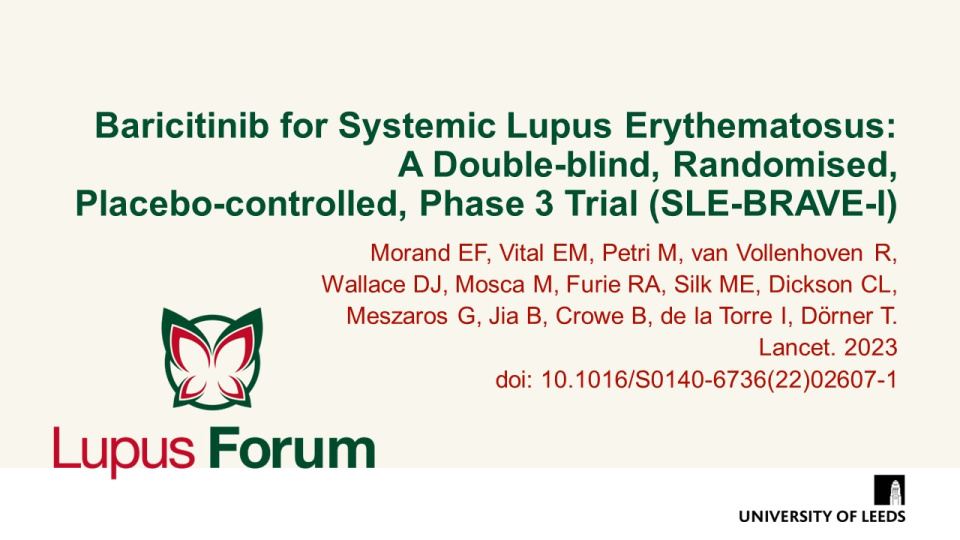Publications
Find coverage of the latest original articles on Lupus, focusing on those with data on therapeutic interventions and those that have clinical impact.
Risk and Factors Associated with Disease Manifestations in Systemic Lupus Erythematosus - Lupus Nephritis (RIFLE-LN): A Ten-year Risk Prediction Strategy Derived from a Cohort of 1652 Patients
Front Immunol. 2023 14:1200732 DOI: 10.3389/fimmu.2023.1200732
Using data from a longitudinal cohort of SLE patients of Chinese origin, the authors identified risk factors for LN and developed a prediction model, RIFLE-LN, which demonstrated good performance in a testing cohort of 270 patients.
Early Infection Risk in Patients with Systemic Lupus Erythematosus Treated with Rituximab or Belimumab from the British Isles Lupus Assessment Group Biologics Register (BILAG-BR): A Prospective Longitudinal Study
Lancet Rheumatol 2023;5:e284–92 doi:https://doi.org/10.1016/S2665-9913(23)00091-7
Data from a large prospective registry (BILAG-BR) highlight that, compared with standard of care, the serious infection risk was similar between rituximab and belimumab.
Keywords:
Belimumab and antimalarials combined against renal flares in patients treated for extra-renal systemic lupus erythematosus: results from 4 phase III clinical trials
Rheumatology (Oxford) 2023;63(2):338–48 doi: 10.1093/rheumatology/kead253
The protection conferred from belimumab against renal flare development in patients treated for extra-renal SLE appears enhanced when administered along with antimalarials (AMA).
Development of American College of Rheumatology Quality Measures for Systemic Lupus Erythematosus: A Modified Delphi Process with RISE Registry Data Review
Arthritis Care Res (Hoboken). 2023 doi: 10.1002/acr.25143
The first ACR quality measures for SLE selected by Bartels, et al. use a rigorous Delphi process, and include recommendations on hydroxychloroquine, glucocorticoid reduction and kidney monitoring.
Belimumab Versus Anifrolumab in Adults with Systemic Lupus Erythematosus: An Indirect Comparison of Clinical Response at 52 Weeks
Lupus Sci. Med 2023;10:e000907 doi 10.1136/lupus-2023-000907
This retrospective study by Neupane, et al. compared belimumab and anifrolumab efficacy at 52 weeks in SLE patients. It concluded that belimumab and anifrolumab have equal efficacy, but further studies would be needed for specific patient demographics.
Machine Learning Identifies Clusters of Longitudinal Autoantibody Profiles Predictive of Systemic Lupus Erythematosus Disease Outcomes
Ann Rheum Dis 2023;82(7):927–36 doi 10.1136/ard-2022-223808
Choi, et al. used machine clustering techniques to divide SLE patients into four distinct clusters. This could potentially be used to predict future clinical outcomes, and as benchmarks to study other SLE-related outcomes.
Keywords:
Does Remission in Systemic Lupus Erythematosus According to the 2021 DORIS Definition Match the Treating Rheumatologist’s Judgment?
Rheumatology (Oxford) 2023;63(1):72–8 doi: 10.1093/rheumatology/kead159
Assessment on agreement between the 2021 DORIS and physician-judged lupus activity finds the 2021 DORIS remission to be an achievable target in clinical practice, with substantial agreement between the DORIS definition and physician-judged remission.
Keywords:
2022 EULAR points to consider for the measurement, reporting and application of IFN-I pathway activation assays in clinical research and practice
Ann Rheum Dis. 2023 doi: 10.1136/ard-2022-223628
The first EULAR-endorsed points to consider (PtC) for the measurement and reporting of IFN-I assays in clinical research and practice are developed.
Keywords:
Baricitinib for Systemic Lupus Erythematosus: a Double-blind, Randomised, Placebo-controlled, Phase 3 trial (SLE-BRAVE-II)
Lancet. 2023 doi: 10.1016/S0140-6736(22)02546-6
Negative results of SLE-BRAVE-II trial show that evidence for the efficacy of baricitinib in SLE is inconclusive.
Baricitinib for Systemic Lupus Erythematosus: a Double-blind, Randomised, Placebo-controlled, Phase 3 Trial (SLE-BRAVE-I)
Lancet. 2023 doi: 10.1016/S0140-6736(22)02607-1
Primary endpoint in SLE-BRAVE-I study was met for the 4 mg baricitinib group, however, key secondary endpoints were not.






